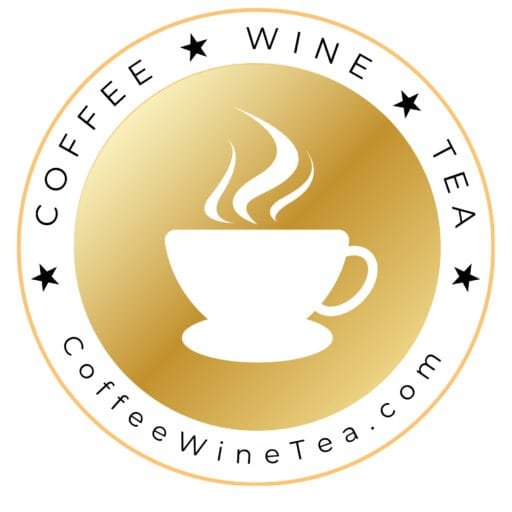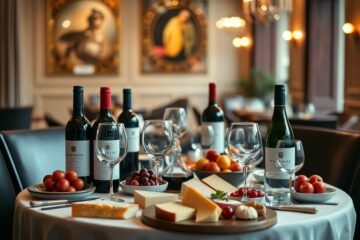With more than 1000 grape varieties in the world and an ever-growing variety of regions that produce wine, it’s becoming more difficult to distinguish one different wine.
Furthermore, certain knowledge and skills are seen to be essential while trying a new wine or speaking to someone over the course of a formal dinner. Here we have the top 5 wine tasting skills you will have to develop to survive that stuffy dinner.

1. Wine Tasting Needs Knowledge of Wine Making
Being a wine tasting expert requires being able to comprehend the basics of the wine industry in general, as well as the vinification process, which is the process used to make wine. This will allow you to distinguish a quality wine from one that is exceptional since the quality, as well as the absence of flaws, typically depends on the process of vinification.
Wine is an alcohol-based beverage composed of fermented grapes. After they are picked fresh, the fruits are crushed to form what is known as the must, which is the unfermented juice that contains seed, skins, and stems.
The fermentation process takes place naturally and converts it into alcohol. When the fermentation is finished then the clarification process begins. All the solids are removed. The wine is then put into a barrel or tank to age.
In reality, the plethora of transformative steps and variables lead to a variety of wines and quality. The typical flavors and fragrances, such as oak and yeast are derived from the vinification process itself.

2. Train Your Palate and Train Your Nose
Each of us has a distinct perception of food. Some are extremely sensitive to the subtle tastes of food, while others will not notice any differences between several varieties. The same is true for wines however the best part is that the ability to sense is a result of age!
To properly taste wine, it is studying the fragrances as much as the tastes. First, the fragrances contain a wealth of information. For instance, certain scents could indicate the grape variety.
For instance, a Sauvignon Blanc is usually recognized by its gooseberry scent. Thus, being aware of the common fragrances can be very useful in identifying the climate, the method by which the wine was matured, or the variety of grape in the above paragraph.
In terms of flavor, our sense of taste is based on the tongue. A mere 10-25 percent of people could be classified as hypersensitive, but again, the tasting skills are easily developed with time and knowledge.
3. Learn Traditions of Wine Tasting
A wine’s tasting experience goes beyond tasting and taking several glasses. It starts by examining the wine as well as its color and viscosity. The test, the intensity, and the maturation are usually identified at this point. An olfactory examination provides the initial information according to the final paragraph. Drinking wine is the final step in an experience, and to this, it’s more than drinking.
The smaller the number of sips easier it will be to recognize the different flavors. Actually, the wine requires oxygen in order to provide its flavor. In order to experience the full experience you need to let the airflow into your mouth, and then keep pouring the wine in it for a short period of time ( twenty seconds is the ideal time for most sophisticated red wines! ).

4. Compare and Relate What You Have Tried
How do you know if it is a good wine or not, if there’s something to compare it to? The most effective way to go about an evaluation of a wine is to taste at least three glasses to help you figure out the region that produces wine as well as a grape or vintage. In this way, you’ll be amazed at what the soil’s characteristics or changes in the climate can affect wine quality!
Another option to increase your skills and sensibility is to learn about the wine by experimenting with the pairing of food and wine. The majority of people pair the wine to the food based on their compatibility or similarity.
The term “similarity” means that the pairing can enhance the flavor of the food and complementarity means that the ingredients create a balance to the wines. It is evident that there isn’t a specific solution. A match is primarily determined by personal taste and imagination.
5. Keep Track of the Things You’ve Attempted!
There are times when you’ll encounter identical wines however, your memory will not be enough to recall the factors that make them different. Starting a wine tasting notebook may be a good idea.
A comprehensive report of a tasting usually includes the wines that were sampled, visual, and olfactory, and tasting evaluation along with your basic opinions. Notes were taken by hand to help determine what was most memorable and help you remember your impression in the long term.
It doesn’t matter whether you are tasting a beverage in an official or personal setting and writing down your impressions as you drink creates connections within your brain. Writing down your experiences helps you to develop an enduring vocabulary and more effectively communicate.
Additionally, sharing notes on your tasting with a friend can enhance and validate your knowledge and, conversely, force you to consider new tracks that you’ve never thought of. The wine tasting world is crazy and fun!




